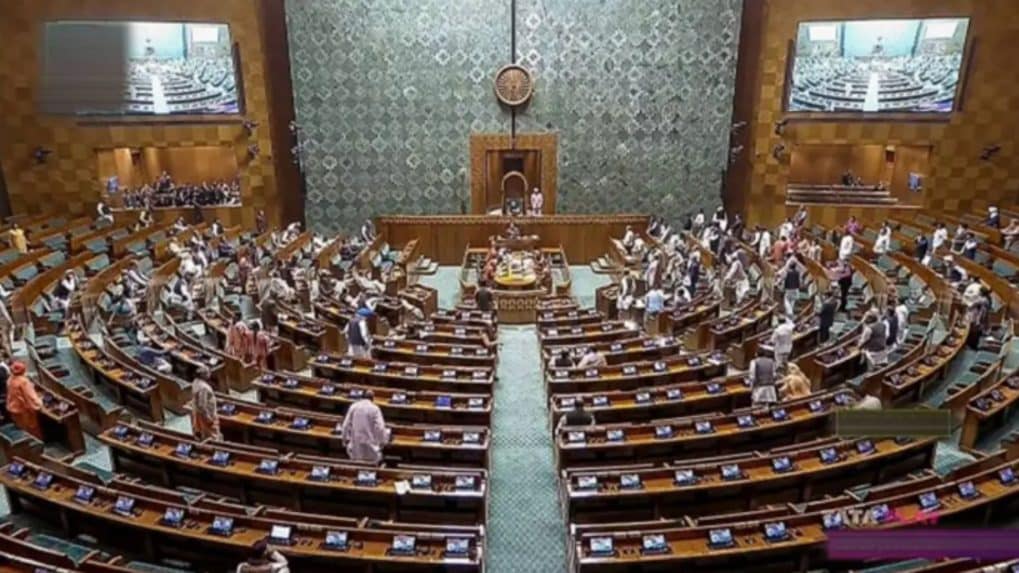Breaking: Lok Sabha clears Promotion and Regulation of Online Gaming Bill, 2025
The Bill aims to regulate e-sports, educational and social gaming while imposing a blanket ban on online money games that involve monetary stakes.
ADVERTISEMENT
The Lok Sabha on Wednesday cleared the Promotion and Regulation of Online Gaming Bill, 2025, a landmark move that seeks to bring sweeping changes to India’s online gaming ecosystem. The Bill aims to regulate e-sports, educational and social gaming while imposing a blanket ban on online money games that involve monetary stakes. Approved by the Cabinet a day earlier, the Bill was tabled by IT Minister Ashwini Vaishnaw. It will be debated in the Rajya Sabha and, once it secures Presidential assent, become law.
Ashiwini Vaishnaw laid the Bill and said, "The Digital and online ecosystem has grown exponentially in India. There are different types of online games such as casual games and esports which is educational and entertaining. On the other hand are online money games which is impacting lives of multiple families. These online money gaming firms are opaque in nature and due to online gaming companies, there are multiple hazards linked to online money gaming. This also impacts national security such as money laundering and terror funding."
Vaishnaw said, "The government wants to support esports and casual games. We want to protect the interest of the society and this Bill protects society and i request the house to pass this Bill unanimously."
The Bill was tabled for discussion and amid ongoing protests, the Bill was passed in the Lok Sabha.
A central regulatory authority has been proposed under the legislation to oversee compliance, support policy formulation, and encourage innovation in the gaming sector. According to the financial memorandum, the authority will be set up with an initial capital expenditure of around ₹50 crore and an annual recurring cost of ₹20 crore, drawn from the Consolidated Fund of India.
The Bill formally recognises e-sports as a legitimate competitive sport and outlines government support for training academies, research centres, and technology platforms to fuel its growth. Social and educational games will also be promoted, with safeguards to ensure age-appropriate content and integration into skill development and learning initiatives.
At the same time, the legislation takes a strict stand against money-based online games. If passed, it will outlaw advertisements across television, print, digital platforms, and influencer or celebrity endorsements that promote such games. Penalties for violations include imprisonment of up to two years, fines of up to ₹50 lakh, or both. Repeat offences could invite stricter punishment—up to three years in jail and fines reaching ₹1 crore.
The Bill makes it clear: “Any person who makes or causes to make advertisement in any media, in contravention of section 6, shall be punished with imprisonment for a term which may extend to two years or with fine which may extend to fifty lakh rupees or with both.”
Further, financial institutions and intermediaries will be barred from facilitating transactions for money-gaming services. Offences in this category are designated as cognizable and non-bailable.
The government has justified the ban by citing concerns over fraud, money laundering, tax evasion, and links to terrorist financing through offshore gaming platforms. The Statement of Objects and Reasons highlights the manipulative algorithms and addictive design features of such games, which often lead to compulsive behaviour, financial losses, and mental health issues, especially among youth and vulnerable populations.
The Bill also grants investigative powers to designated authorities, allowing them to search, seize, and block operations of money-gaming platforms, both physical and digital, without a warrant. Non-compliant platforms could be blocked under provisions of the Information Technology Act, 2000.
With Presidential recommendation secured under Article 117 of the Constitution, the Bill is slated for detailed discussion in both Houses of Parliament. If enacted, it will mark a major policy shift—positioning India as a potential global leader in regulated online gaming, while decisively shutting down avenues for money-based gaming.

